Lenovo’s solar-powered laptop could be a game changer for battery longevity – but we'll be waiting a while for a fully-fledged product
Lenovo unveiled an experimental solar-powered laptop at MWC 2025 amid updates to the Yoga and Ideapad lineups
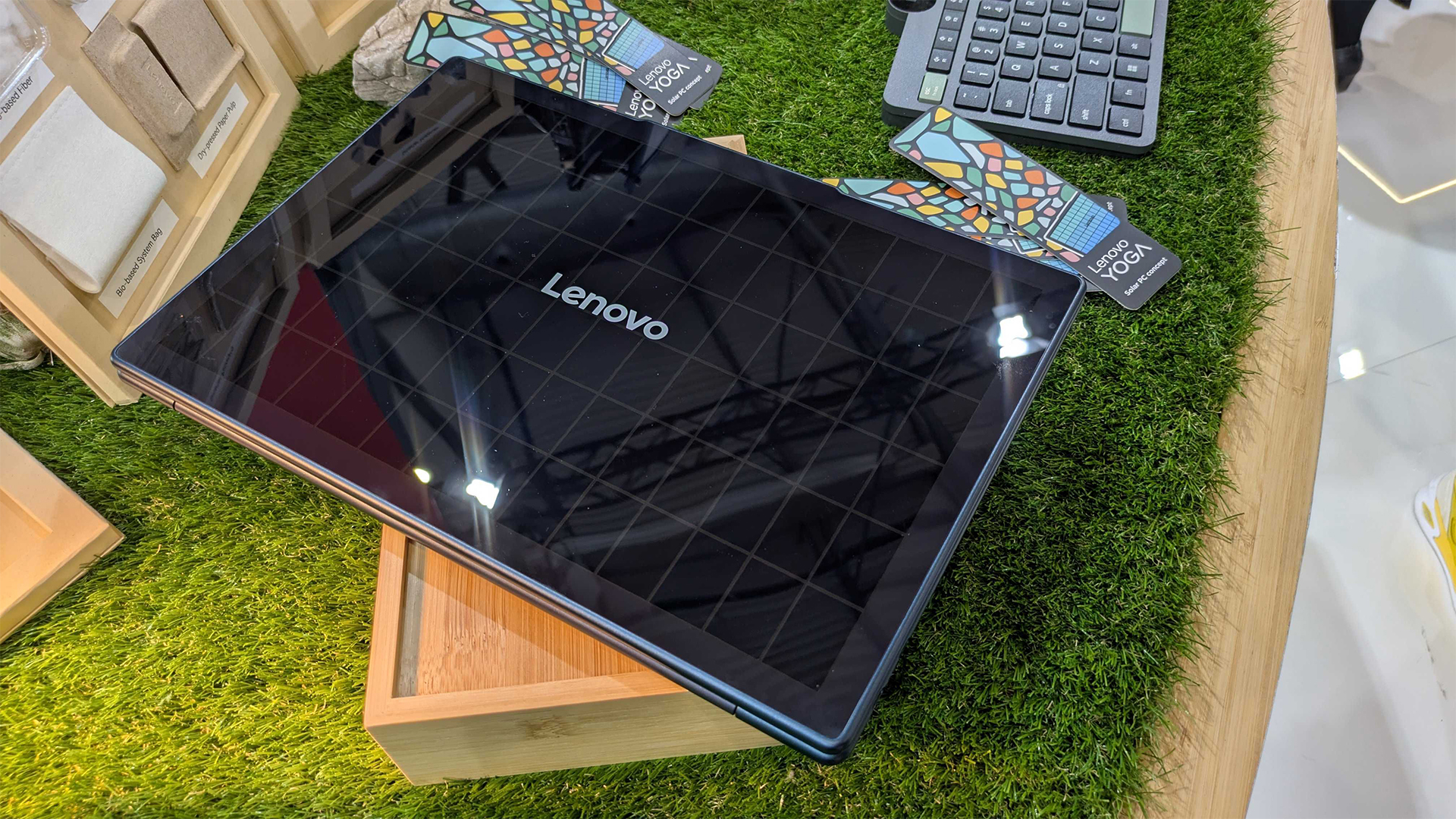

Laptop running low on charge? Forget lugging a cable around or searching for power points — simply find a sunny spot.
That's the idea of Lenovo's Yoga Solar PC, which features solar panels on the rear of the laptop to convert sunshine into power, with the firm claiming that just 20 minutes in the sun is enough to power an hour of video playback.
However, though the design was shown off at Mobile World Congress in Barcelona, the laptop remains a proof of concept.
Alongside that glimpse at a smarter future for mobile working, Lenovo also unveiled new laptop designs that are focused on AI: a pair of Lenovo Yoga Pro Aura Editions and a "future-proofed" Lenovo IdeaPad Slim 3x.
The new laptops highlight the PC industry's shift to "AI powered" devices, with the Aura line focused on bringing AI to the Lenovo lineup via a partnership with Intel, which has struggled amid the rise in AI.
"As we push the limits of AI innovation higher than ever, it is important to remember that delivering access to AI for all is equally a core tenet of Lenovo’s philosophy," said Jun Ouyang, Lenovo’s SVP and GM of the consumer segment, intelligent devices group.
"Likewise, as we endeavor to redefine the boundaries of power in technology, we must ensure that it continues to be a positive force."
Get the ITPro daily newsletter
Sign up today and you will receive a free copy of our Future Focus 2025 report - the leading guidance on AI, cybersecurity and other IT challenges as per 700+ senior executives
How does the Yoga Solar PC concept laptop work?
The solar-powered laptop is a simple idea: make use of the rear of the device to house solar panels to give the battery a boost. Lenovo said the setup featured a conversion rate above 24%, claiming it as one of the highest in the industry.
The proof of concept Yoga Solar PC features what Lenovo calls "back contact cell" technology, a design that puts the mounting brackets and electrical contacts on the rear of the cell, giving more space on the front for solar absorption — and letting it look a bit cleaner.
Despite the addition of the solar panels, the design remains a slim 15mm and weighs just 1.22kg.
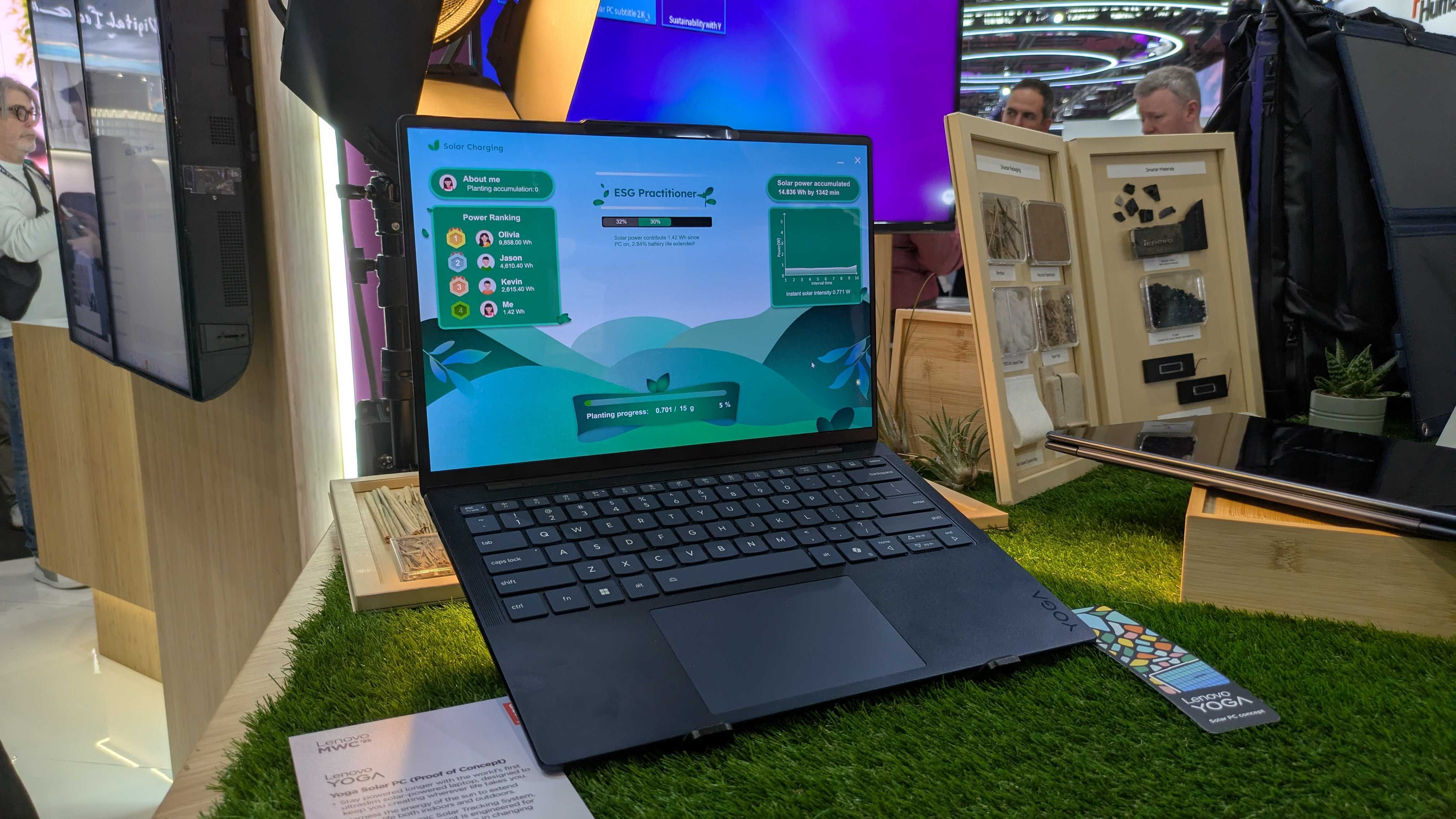
The system automatically adapts to different light savings, adjusting the charging to send any harvested energy to the system. It works in low light as well as bright sun, letting the laptop slowly recharge at all times.
In direct sunlight, Lenovo said twenty minutes is enough for the solar panels to absorb and convert the energy required to playback an hour of video.
Lenovo hasn’t indicated if it plans to develop the proof of concept into a fully-fledged consumer product, but did unveil an additional proof of concept with solar ideas: a USB-C power bank with detachable solar panel that can be moved into the best position to capture the sun.
Proof of concept AI projects
Alongside the solar experiments, Lenovo showed off a few other proof-of-concept ideas focused on AI.
That includes an AI Display with its own NPU, which the "display NPU" (dNPU) uses to adapt to the user's movements to adjust the screen for best viewing angles, as well as giving AI powers to non-AI PCs.
"The dNPU not only enhances the monitor’s abilities, but also empowers non-AI PCs with AI computing power," Lenovo explained.
"With the AI Display with NPU inside, non-AI PCs will be able to use Large Language Models, receiving commands from the user, analyzing and recognizing the intent, and allowing the Assistant to execute the request."
Other ideas touted by the firm at MWC include the Lenovo AI Stick, which can be plugged into a PC without its own NPU to power AI such as large language models or graphics apps. The stick features its own 32 TOPS NPU and connects via USB-C Thunderbolt port.
New Yoga Aura laptops
Lenovo extended its AI-focused Aura lineup with a pair of convertible Yoga Pros, the 16in Lenovo Yoga Pro 9i Aura Edition and the 14in Yoga Pro 7i Aura Edition, adding to previously announced laptops.
The Aura brand focuses on adding AI features like smart modes to enhance PC customization, smart sharing tools to link Android and iOS, and a smart care tech support tool, all powered by an AI chip from Intel.
The 16in Lenovo Yoga Pro 9i Aura Edition is being marketed at creative professionals, with a tandem, or double layer, OLED display that's brighter without draining power. It's powered by an Intel Core Ultra processor and can be configured to include an Nvidia RTX 5070 GPU.
Meanwhile, the 14in Yoga Pro 7i Aura Edition features a 14.5in 3K OLED display, while all Yoga keyboards have oil and water-resistant coatings for better typing. For those looking for a 14in laptop powered by an AMD chip, Lenovo also showed off the Yoga Pro 7, which runs an AMD Ryzen AI 300 Series processor.
The 16in Lenovo Yoga Pro 9i Aura Edition will be available in EMEA in June with a starting price of €1,699 inc VAT and the 14in Yoga Pro 7i Aura Edition arrives this month with a starting price of €1,399 inc VAT.
Ideapad Slim 3X
Alongside the new Aura laptops powered by Intel chips, Lenovo also revealed at MWC the 15in IdeaPad Slim 3X ($649/€599), a more budget option that Lenovo said delivered "AI for anybody".
This features a Qualcomm Snapdragon X processor with a 45 TOPS NPU, giving users a balance of battery life and performance while also supporting Copilot+, Microsoft's AI suite.
Lenovo added "future proof storage expandability" to the Ideapad Slim 3Xby including a spare SSD slot for more storage if needed.
It also features support for Wi-Fi 7, allowing for fast charging with two-hours battery life after just 15 minutes plugged in. The Ideapad Slim 3X is available in EMEA from March.
MORE FROM ITPRO
- A laptop with a rollable display? Who is this for exactly?
- Lenovo is doubling down on AI PC roll-outs
- Lenovo's ThinkPad X1 Carbon Gen 12 doesn't quite meet expectations
Freelance journalist Nicole Kobie first started writing for ITPro in 2007, with bylines in New Scientist, Wired, PC Pro and many more.
Nicole the author of a book about the history of technology, The Long History of the Future.
-
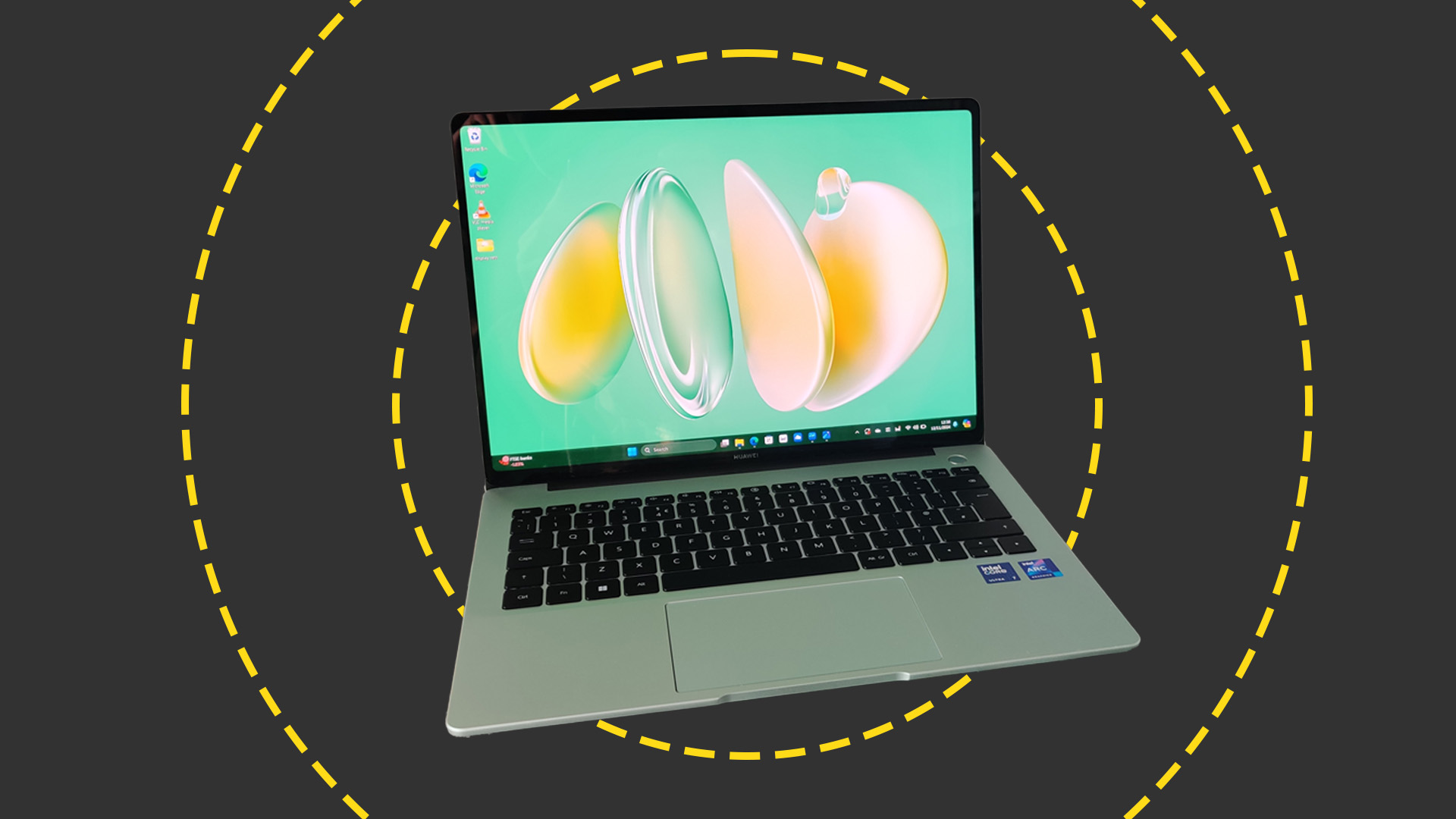 Huawei MateBook 14 (2024) review: A solid all-rounder with a stunning display
Huawei MateBook 14 (2024) review: A solid all-rounder with a stunning displayReviews An attractive, well-rounded device with a spectacular OLED display, but newer ARM-based Windows laptops offer that little bit more
By Solomon Klappholz
-
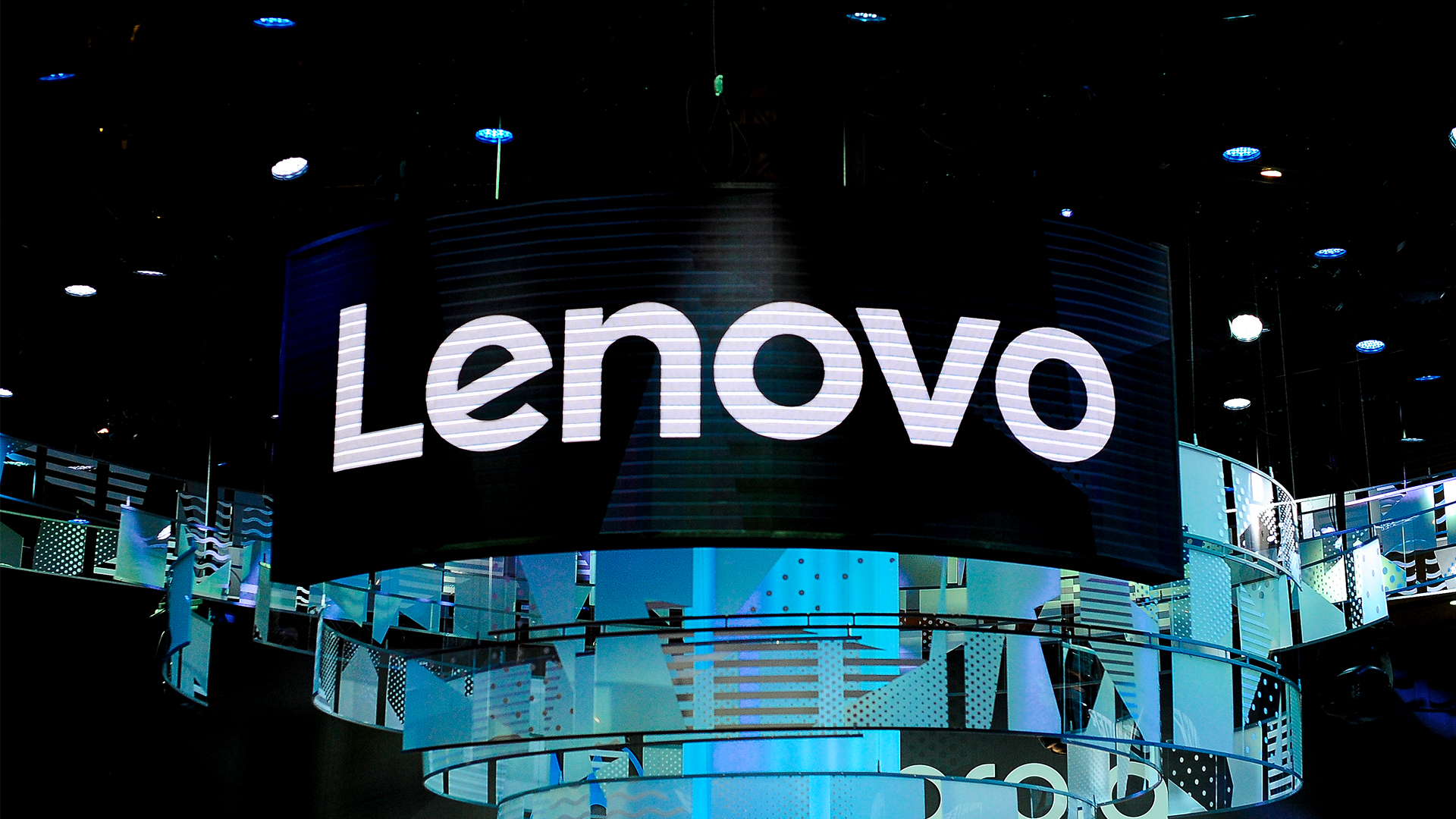 Lenovo unveils its new ‘hybrid-AI’ vision
Lenovo unveils its new ‘hybrid-AI’ visionNews The company says its new modular, customizable solutions deliver higher productivity and tangible return on investment
By Emma Woollacott
-
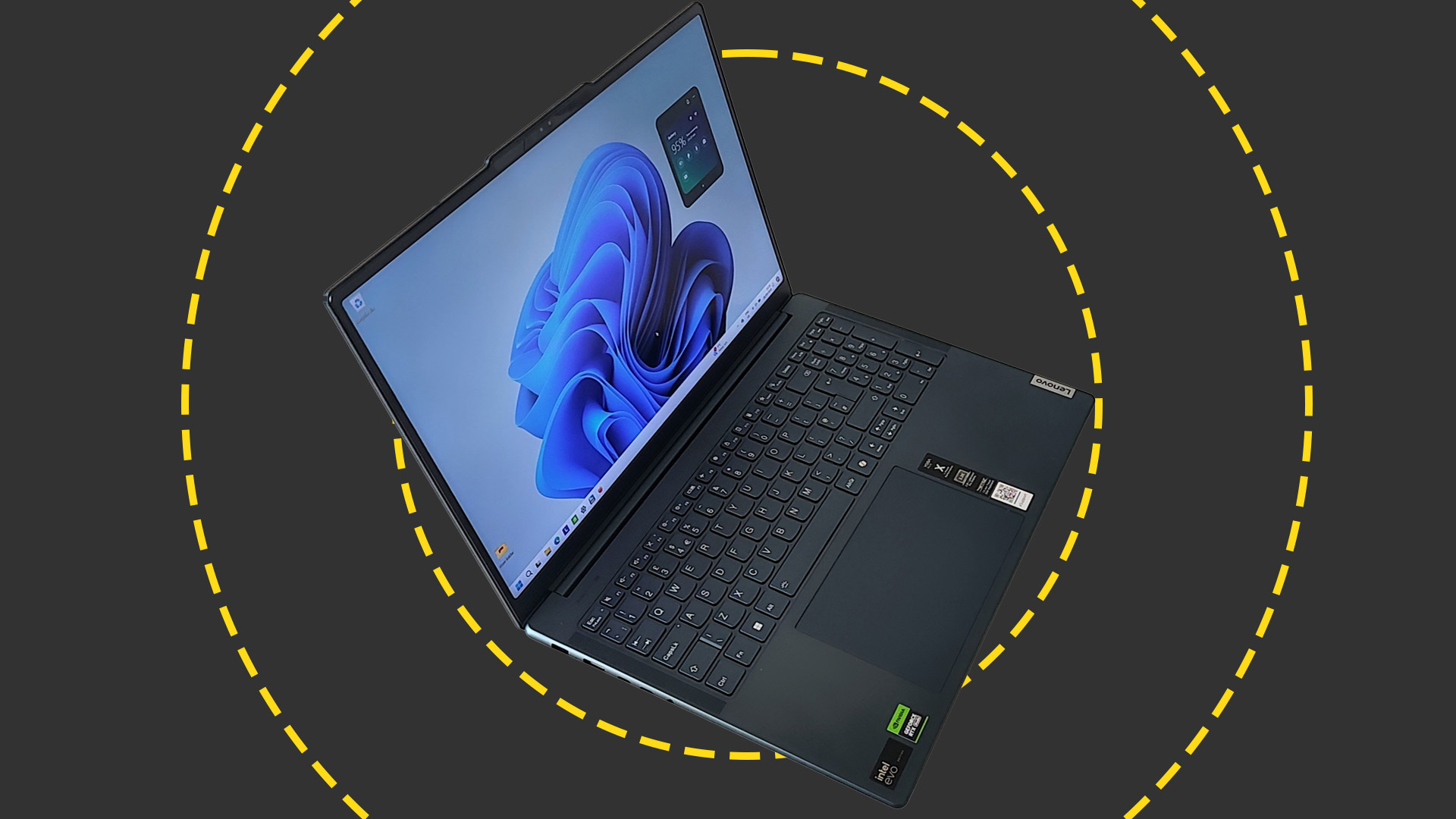 Lenovo Yoga Pro 9i 16 Gen 9 review: One of the best-value laptops on the market
Lenovo Yoga Pro 9i 16 Gen 9 review: One of the best-value laptops on the marketReviews With a powerful Nvidia discrete GPU, and an attractive price, the latest Yoga Pro 9i is the perfect laptop for power creatives on the go
By Alun Taylor
-
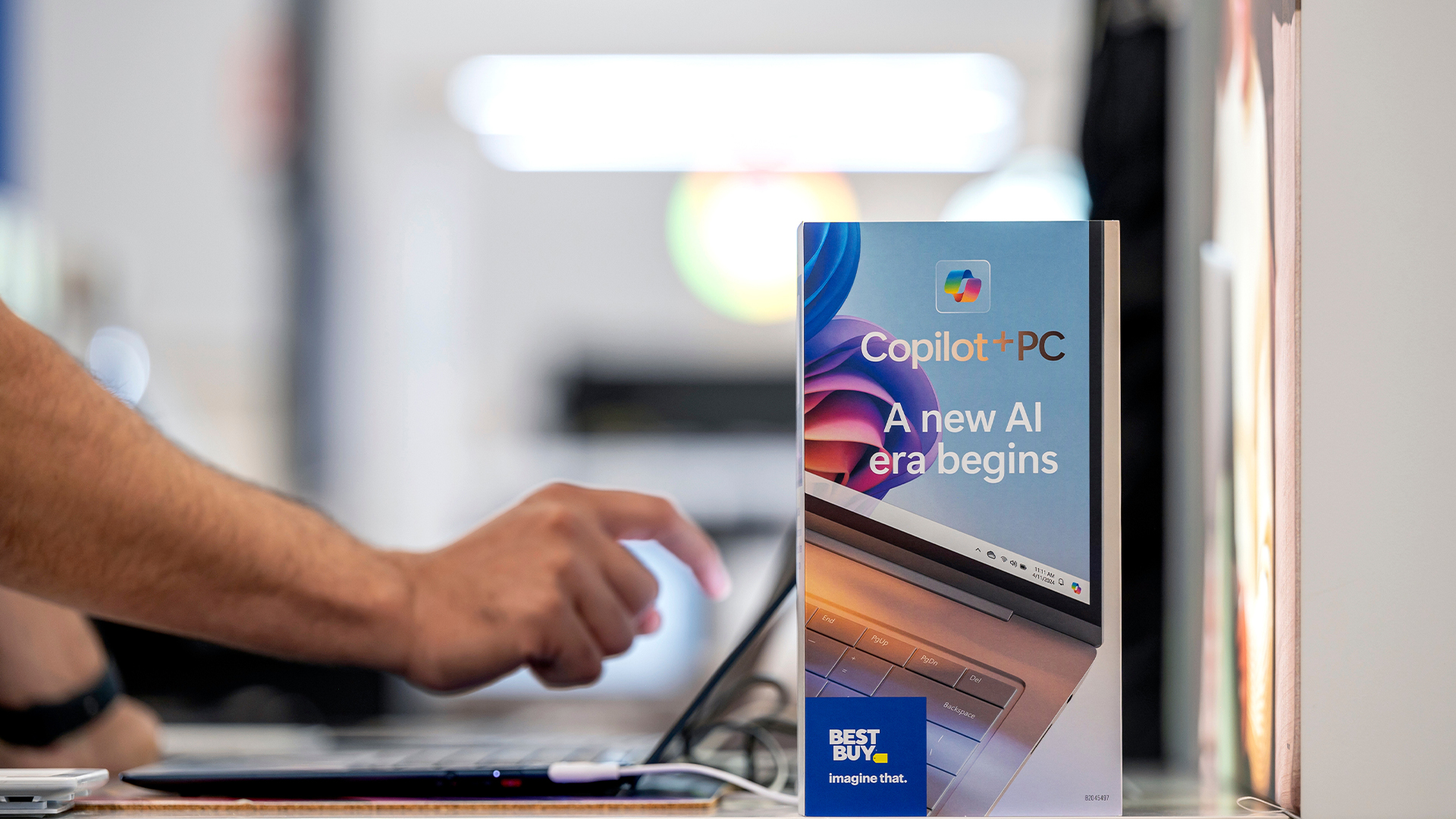 Why the world is about to be swamped with AI PCs
Why the world is about to be swamped with AI PCsNews With adoption rates set to surge, AI PCs will become far more mainstream in years to come
By Nicole Kobie
-
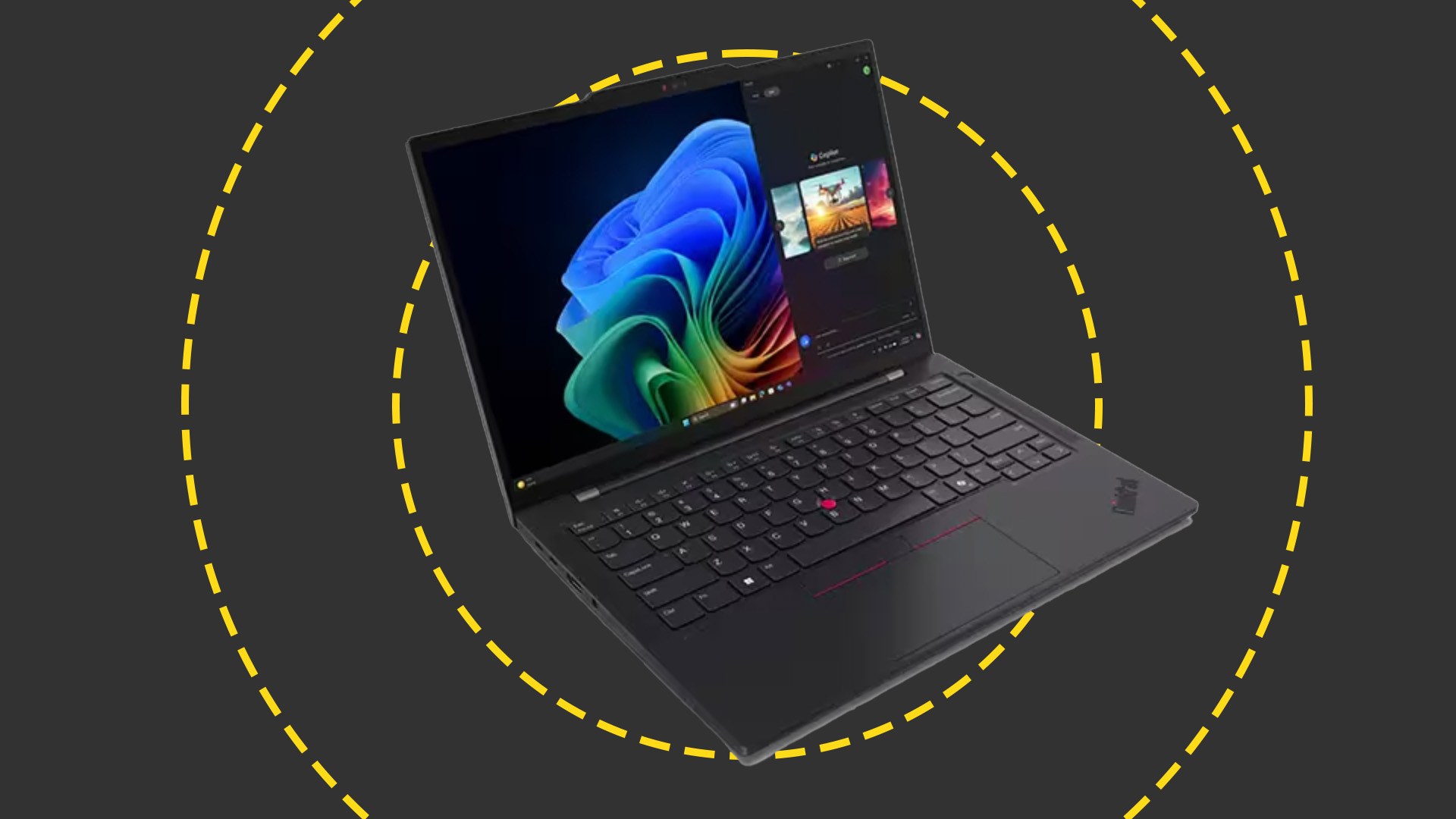 Lenovo ThinkPad T14s Gen 6 review: A safe pair of hands that will last for days
Lenovo ThinkPad T14s Gen 6 review: A safe pair of hands that will last for daysReviews Although unsightly, looks aren't everything -- with this AI-powered laptop capable of offering an outrageously long battery life and blistering performance
By Keumars Afifi-Sabet
-
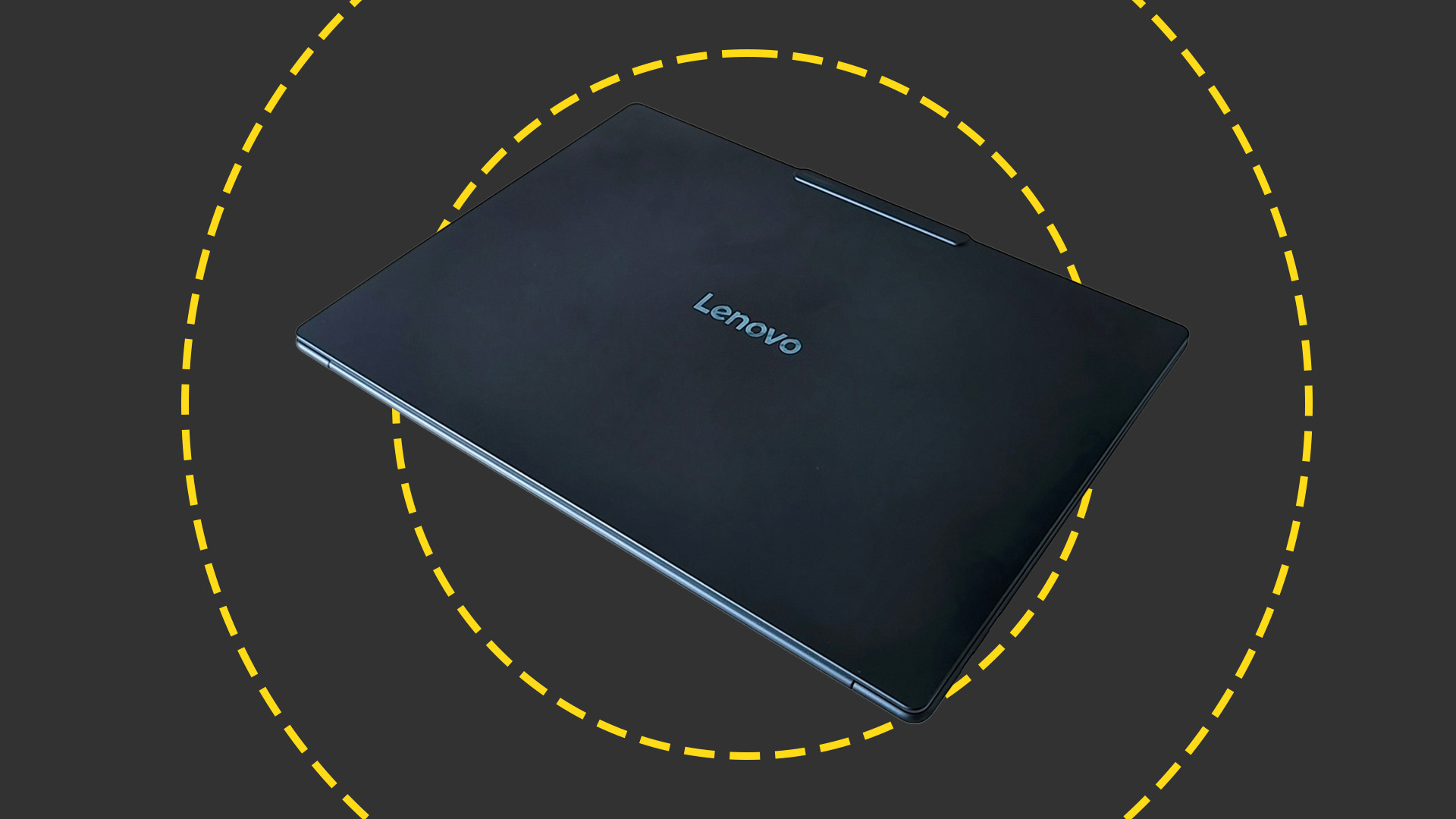 Lenovo Yoga Slim 7x review: At last, Windows on ARM comes good
Lenovo Yoga Slim 7x review: At last, Windows on ARM comes goodReviews With few compatibility issues and Mac-like battery run times the new Snapdragon X Elite silicon is a welcome addition to the laptop world
By Alun Taylor
-
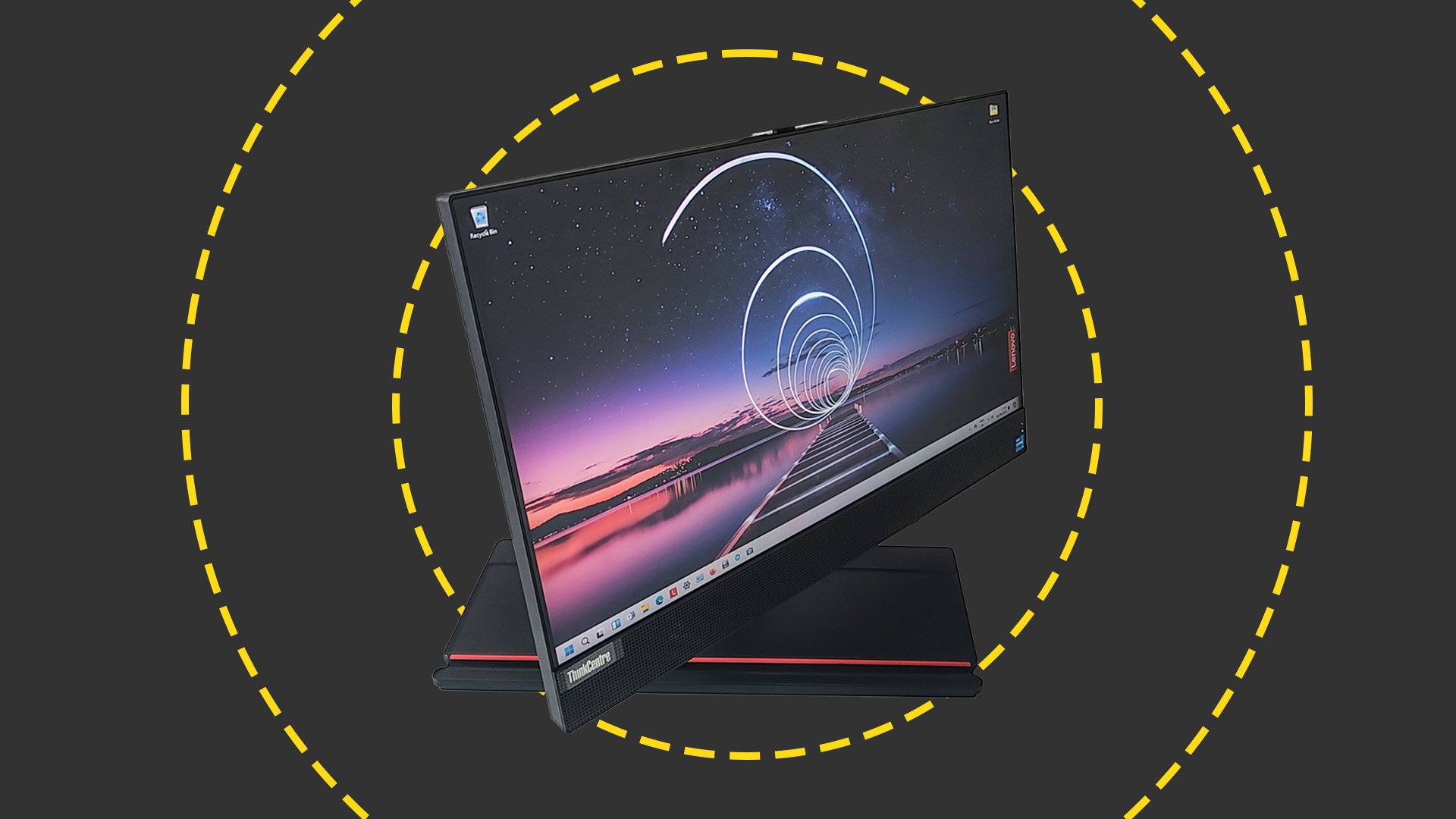 Lenovo ThinkCentre M90a Gen 5 review: A stylish, compact, and feature-laden all-in-one
Lenovo ThinkCentre M90a Gen 5 review: A stylish, compact, and feature-laden all-in-oneReviews Only the flaccid integrated graphics processor lets down Lenovo's otherwise impressive M90a Gen 5
By Alun Taylor
-
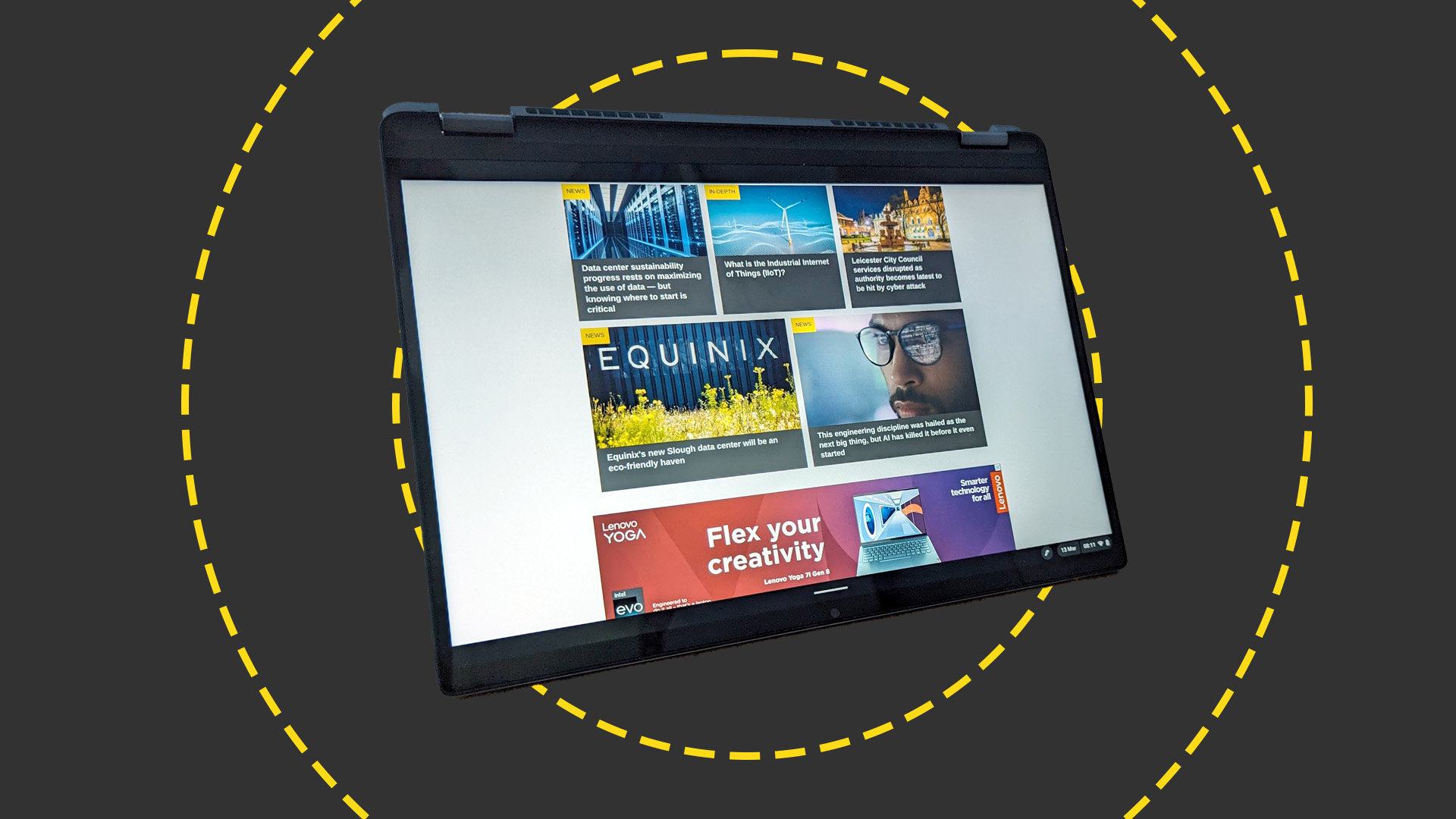 Lenovo IdeaPad Flex 5i Chromebook Plus review: You can't beat this Chromebook Plus for value
Lenovo IdeaPad Flex 5i Chromebook Plus review: You can't beat this Chromebook Plus for valueReviews While not the strongest screen quality or performance, the Flex 5i Chromebook Plus gets most of the way there on a lower budget
By Stuart Andrews

